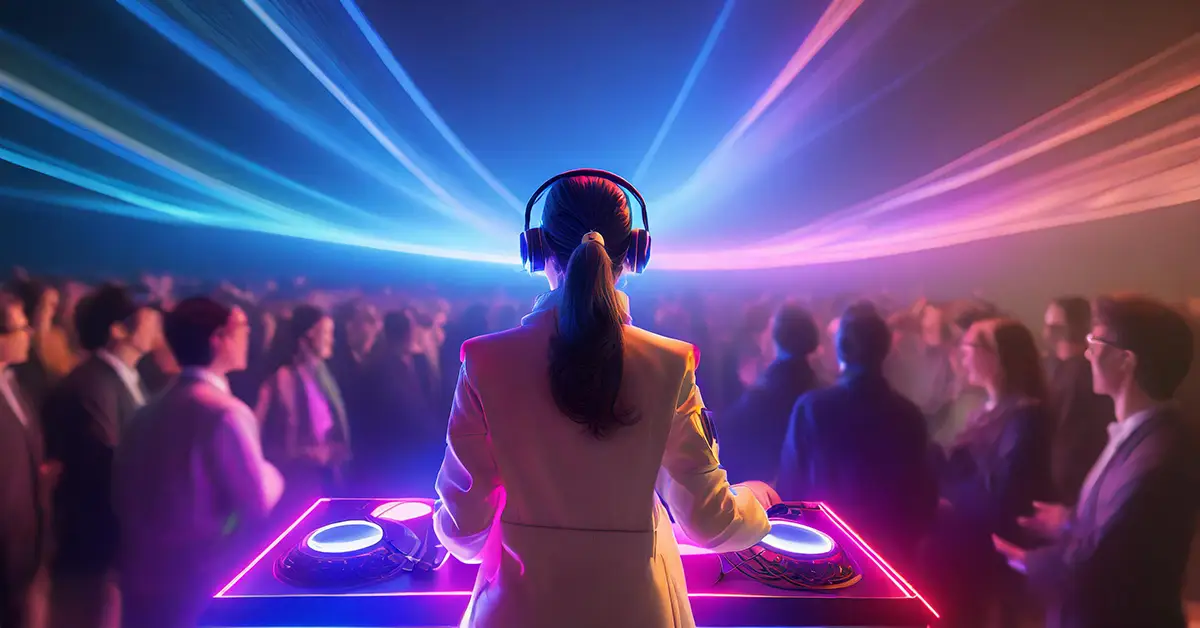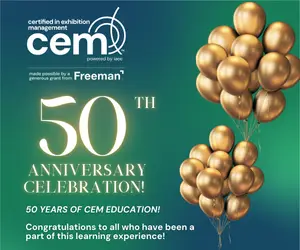As an exhibition/event organizer, you’ve got a million things on your plate. From coordinating vendors to managing attendee experiences, every detail matters. But there is one crucial aspect that often gets overlooked: music licensing. Whether it’s background music in exhibition halls, walk-on songs for speakers, or live performances, proper licensing is not just important – it’s legally required.
In IAEE’s recent webinar, Navigating the Music Licensing Process, Vice President of Industry Relations and Licensing at Broadcast Music, Inc. (BMI) Dan Spears demystifies the intricate world of music licensing for exhibitions and events. He offers clarity and a deeper understanding of the complexities of this legal landscape by delving into the nuances of Copyright Law and how it intersects with public music performance at exhibitions and events.
Why Music Licensing Matters
You might be wondering, “Do I really need to worry about this?” The short answer is yes. Here’s why:
- Legal Requirement: Almost all music played in public requires licensing and is subject to copyright laws.
- Financial Risk: Failing to obtain proper licenses can result in hefty fines – up to $150,000 per copyrighted song for willful infringement.
- Supporting Artists: Licensing ensures that songwriters and composers are fairly compensated for their work.
Who’s Responsible?
As the event organizer, the buck stops with you. You are responsible for obtaining proper music licenses, even if:
- An exhibitor plays music in their booth.
- A speaker uses a song in their presentation.
- A DJ or band performs at your event.
- You are hosting a karaoke night.
Understanding the Players
The music licensing landscape can be confusing, but there are a few key players you should know:
- BMI (Broadcast Music, Inc.): Represents about 1.3 million songwriters and publishers.
- ASCAP (American Society of Composers, Authors and Publishers): Represents over 700,000 members.
- SESAC (Society of European Stage Authors and Composers): A smaller, invitation-only organization.
BMI and ASCAP are the largest players in the U.S. market, each representing roughly 50% of artists.
The Licensing Process
Here’s a quick rundown of what you need to know:
- Determine Your Needs: Consider all the ways music will be used at your event.
- Choose a Licensing Organization: BMI and ASCAP offer similar rates due to a Department of Justice agreement.
- Submit a Request: Fill out a form detailing your event and expected attendance.
- Pay the Fee: Licensing fees are typically calculated per event and per attendee.
Benefits of Proper Licensing
While it might seem like an extra cost, proper licensing offers several benefits:
- Legal Protection: Avoid potential lawsuits and fines.
- Vast Music Library: Access to millions of songs for your event.
- Flexible Options: Many organizations offer tailored licenses and multiple payment options.
- Supporting the Arts: Your fees help support the creation of new music.
Final Thoughts
Navigating music licensing doesn’t have to be a headache. By understanding your responsibilities and the licensing process, you can ensure your event is both entertaining and legally compliant. Remember, when in doubt, reach out to licensing organizations directly – they’re there to help you make your event a success while supporting the music industry.
Don’t let music licensing be an afterthought. Your attendees (and the law) will thank you for it!


